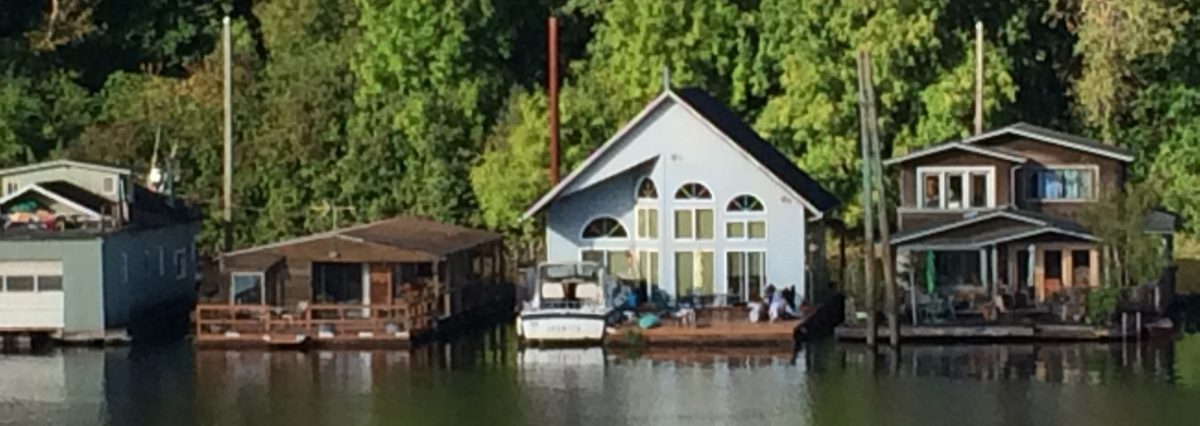The MHC (Manufactured Housing Coalition) is meeting on April 17th to discuss marina landlord-tenant legislation.
Marina residents are encouraged to attend. Your rights are being discussed.
These agenda items came out of a need to increase protections for floating homeowners to bring them in line with newer legislation that was enacted for manufactured dwelling park homeowners. Here are the items that are being debated.
1. Park landlords are required to register with the state and take continuing education courses to stay current on laws and park management issues. ORS 90.732, 90.734. Given that many floating home marina owners are unaware that there are laws which prevent them from doing certain things, we feel that it is in the best public interest for marina landlords to be required to attend continuing education classes. However, both landlords and tenants contend that it may be difficult to find qualified people to teach those kinds of marina management classes because of the small community of experts available. This is currently being discussed in prep for the 2019 legislative session.
2. Park and marina tenants can form a Committee of Seven to help them work with the owners to improve quality of life issues (rule changes, allowing currently forbidden activities, etc.), however if the marina owner fails to work with the Committee of Seven, marina tenancies are not covered by the Manufactured Communities Resource Center like park tenants are and therefore cannot benefit from the MCRC’s education and mediation. Marina residents also do not pay into the $10 annual special assessment paid by MH park tenants, to support MCRC. ORS 90.600 (5)(b), 446.515 – 446.547. This is currently being discussed in prep for the 2019 legislative session. The current issue is that the relationship between a floating home tenant and owner is very one-sided. If a tenant requests that the marina owner change something at the marina, or the owner states that a tenant is in violation of some rule that isn’t even a valid rule, currently there is nothing to require a marina owner to at least respond to the marina tenant requests nor to attempt a mediation. At that point, the only recourse available is through expensive litigation. If you receive an eviction notice, you must go to court to defend yourself, since you have no state-sponsored access to free dispute resolution services that park tenants do. The proposal is that floating homeowners would pay $10 into a yearly special assessment fee in order to have access to the dispute resolution services rather than taking on the expense of hiring an attorney, going to court and letting a judge decide your fate.
3. For parks owners, there is a landlord habitability duty to maintain the surface of the space under the home. ORS 90.730 (3) (g). This item is not currently being discussed because there are no floating homeowners which attend the MHC meetings who are from the marina where floating houses hit bottom annually and remain tilted until river water levels increase . If this is an issue that can be resolved, then come to the meetings and voice your concern. Landlords and their attorneys have spoken and they contend that it is unreasonable for a landlord to dredge to protect homes. That said, there is current discussion in prep for the 2019 legislative session around extending these laws to require marina owners to maintain certain common areas in habitable condition – such a docks, ramps, and walkways.
4. Park tenants are given the first opportunity to purchase their park prior to a park owner putting it up for sale. ORS 90.840 to .850. Marinas operate under the pre-2014 law. ORS 90.805 – 90.830. This item is up for discussion in the current 2019 legislative session. Marina residents lack some of the purchase tools that park residents have, such as the capital gains break for landlords who sell to the residents or a nonprofit (See chapter law following ORS 316.792) and the Oregon Affordable Housing Tax Credit (ORS 317.097). An equivalent to the Manufactured Dwelling Park Nonprofit Cooperative, ORS 62.800 – 62.815 does not exist. Updating this law to come into line with similar provisions for manufactured homeowners would be VERY beneficial for floating home owners. This law would require marina owners to notify floating homeowners they they have interest in selling the marina and provide the tenants with the opportunity to purchase the marina themselves – thereby converting their rented slips into owned slip (this would increase each home owner’s property value since houses in owned slips are worth more than those in rented slips). This law would also provide resources and assistance throughout the purchasing process.
5. Provisions regarding park closure should a landlord choose to repurpose the land, including required landlord payments to displaced tenants and state tax credit. ORS 90.645 – 90.660. Marinas operate under the pre-2007 law. – ORS 90.671. It is not likely that a marina would repurpose the leased waterfront for something more profitable to them than a floating house marina and boat slips, so there is not a sense of urgency to make changes to this. However, laws do exist which direct marina landlords what to do in such a case (ORS 90.671) and those directives are grossly inadequate and could bankrupt floating home owners at that marina should the event occur.
See the EVENTS page for details about the time, date and location of the meeting. Help spread the word!
